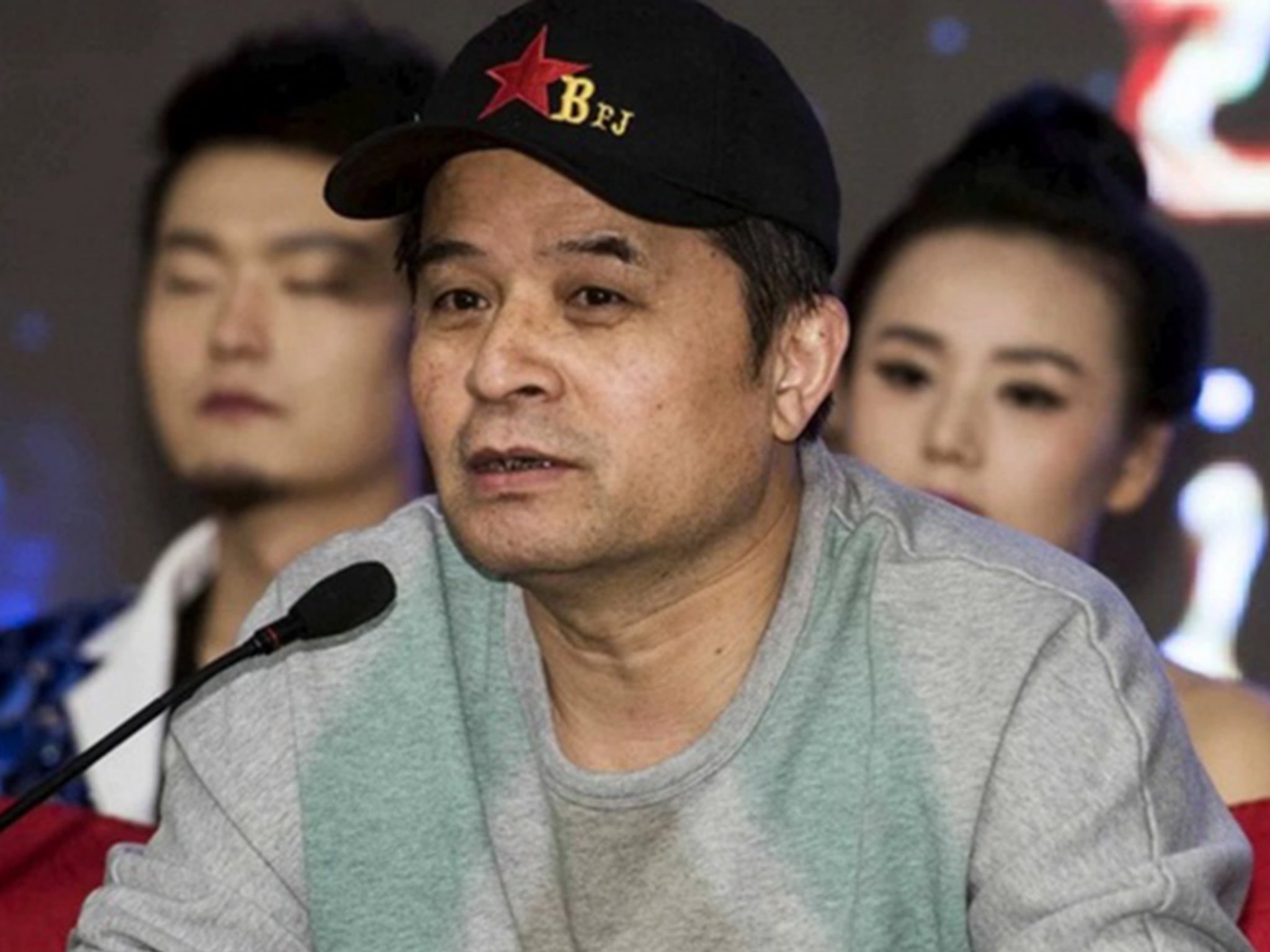Famous Chinese TV host suspended after privately cursing Mao Zedong
The episode is a reminder of the shrinking space for free speech and even humour in modern China

One of China’s leading TV presenters and talent show hosts has been suspended after a video showing him cursing Mao Zedong at a private dinner went viral, local media reported.
The episode is a reminder of the shrinking space for free speech and even humor in modern China, and the way that Mao’s standing has been revived under President Xi Jinping.
A one-minute-18-second clip shows Bi Fujian, who hosts a Saturday night show called "Star Boulevard," singing a Cultural Revolution-era Peking opera song at a dinner table while throwing in mocking comments. At one point he called Mao a “son of a bitch” who has “really brought us great misery.”
But after the clip went viral, his employer, China Central Television (CCTV), issued a brief statement saying his comments had “caused serious social impact” and promising to “investigate carefully” and “handle it seriously.”
Saturday’s edition of "Star Boulevard" has been canceled, and local media quoted unnamed CCTV officials as saying Bi's shows have been suspended for at least four days.
Even 40 years after his death, Mao’s legacy remains problematic for the Chinese Communist Party, which reveres him as the founding father of the nation while acknowledging he was wrong “30 percent” of the time.
Yet official history is virtually silent on the famine that killed tens of millions of people during a failed industrialization policy known as the Great Leap Forward from 1958 to 1961, and the political persecutions that occurred before and during the 1966-76 Cultural Revolution.
Mao’s reputation is also making something of a comeback under current President Xi, who has argued that one of the roots of the Soviet Union’s collapse was its dismissal of the memories Lenin and Stalin. As free speech shrinks under Xi, an honest appraisal of Mao’s legacy looks ever more distant.
Some saw the incident involving Bi as bringing back painful memories of Mao’s era, when neighbors and even family members would inform on each other’s private conversations.
“Has the Second Cultural Revolution come?” one Netizen asked on social media. “A government that fears people’s criticism, it only proves that the government is too fragile!” another commented on the Sina Weibo microblogging service.
Some defended Bi’s right to free speech, even if the fact that he worked for the state propaganda machine provoked some ironic remarks: "Always thought people at CCTV are eunuchs and clowns; didn't expect to see such free thinkers with independent personality! Support!"
But Bi’s remarks have infuriated many, especially loyal followers of Mao, who called Bi, a Communist Party member, ungrateful and shameless, as well as a “clown with no moral bottom line.” Some have asked for Bi to be punished, quoting the example of a 17-year-old in Singapore who was arrested two weeks ago for criticizing the country’s founding father, Lee Kuan Yew, who died last month.
On Wednesday, China Youth Net, which belongs to the Communist Youth League of China, ran a commentary saying Bi “owed Chinese people an apology.”
“Mao Zedong is a great person of an era, the founding father of the People’s Republic. Without Mao, there wouldn’t be the Communist Party, and would Bi Fujian be able to enjoy his dinner while cursing ungratefully?” it wrote. “Even at private gatherings, even in private space, it’s not like one can joke about or mock anyone or anything.”
The National Red Army Construction Project Council also issued a statement Wednesday revoking Bi’s title of “National Red Army Primary School Ambassador” to eliminate what it said was the bad influence his comments have caused.
It said students and teachers would stick with Xi’s instructions to “ensure the color of red China will never change” and that the “red genes will pass on for generations.”
The Red Army school project was initiated by retired top leaders and families of revolutionaries to promote patriotic education. Since 2007, they have built about 150 Red Army schools in areas that used to be revolutionary bases.
Censors were also busy. Authorities have ordered Chinese media to cool the discussion and delete the clip of Bi's remarks. (It’s still available on YouTube here. ) The commentary by China Youth Net asking Bi to apologize has also been deleted.
Studies of news headlines have also shown that “Mao Zedong Thought” has been mentioned more frequently since 2010. Some see echoes of Mao in the way President Xi has consolidated power and encouraged something of a personality cult around his leadership.
Xinhua Daily Telegraph, a newspaper run by the state news agency, published a commentary Wednesday saying Bi deserves what he gets.
“While we are happy to see the freedom of speech and tolerance rise, we should keep our distance and remain cautious about so-called ‘creative’ speeches that challenge the bottom line and taboo subjects,” it said, warning against the pollution of language on the Internet.
Bi, who also hosts the annual "Spring Festival" gala show, the most-watched show on Chinese television, has not responded publicly to the controversy.
Copyright: Washington Post
Subscribe to Independent Premium to bookmark this article
Want to bookmark your favourite articles and stories to read or reference later? Start your Independent Premium subscription today.

Join our commenting forum
Join thought-provoking conversations, follow other Independent readers and see their replies